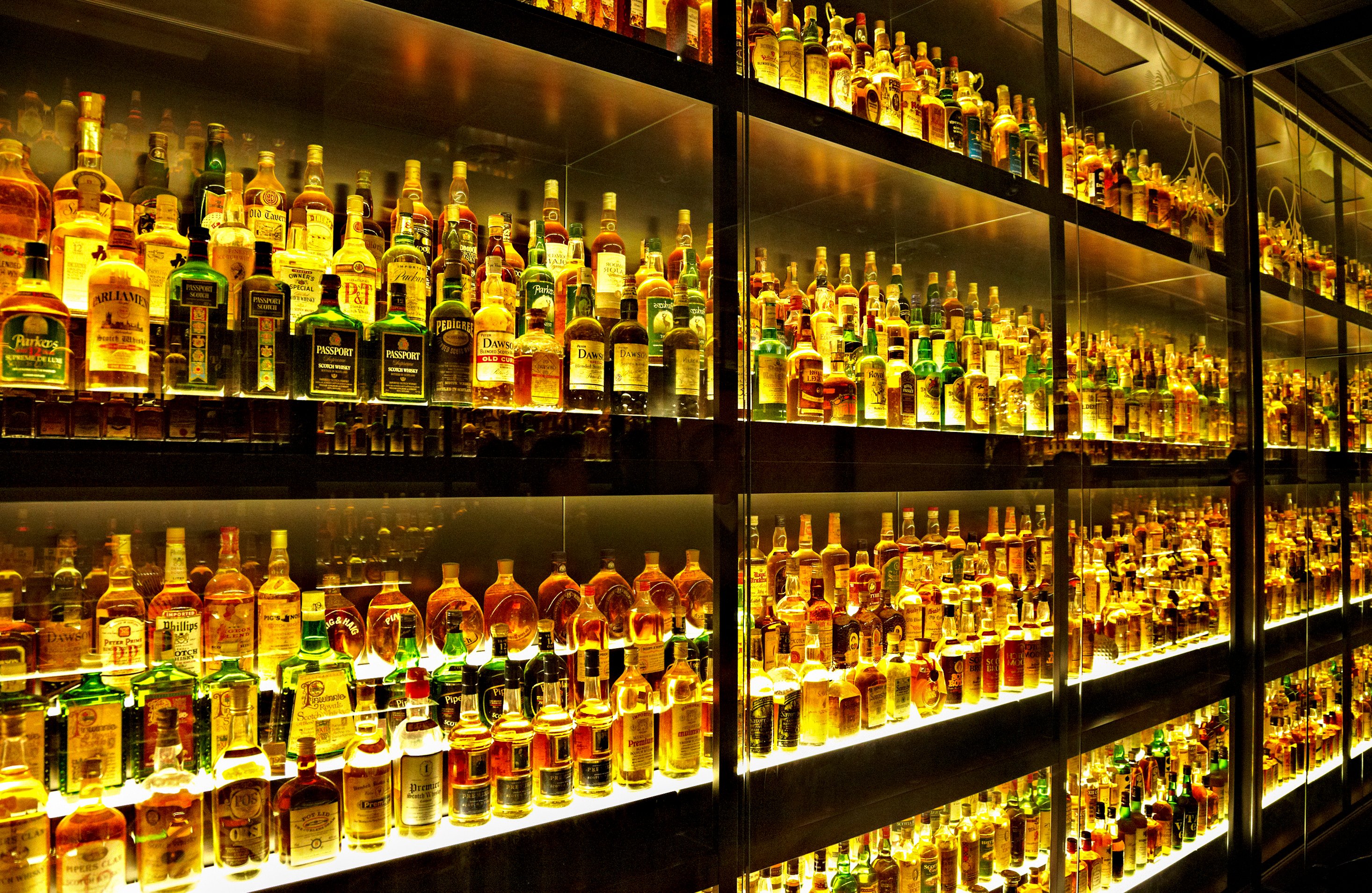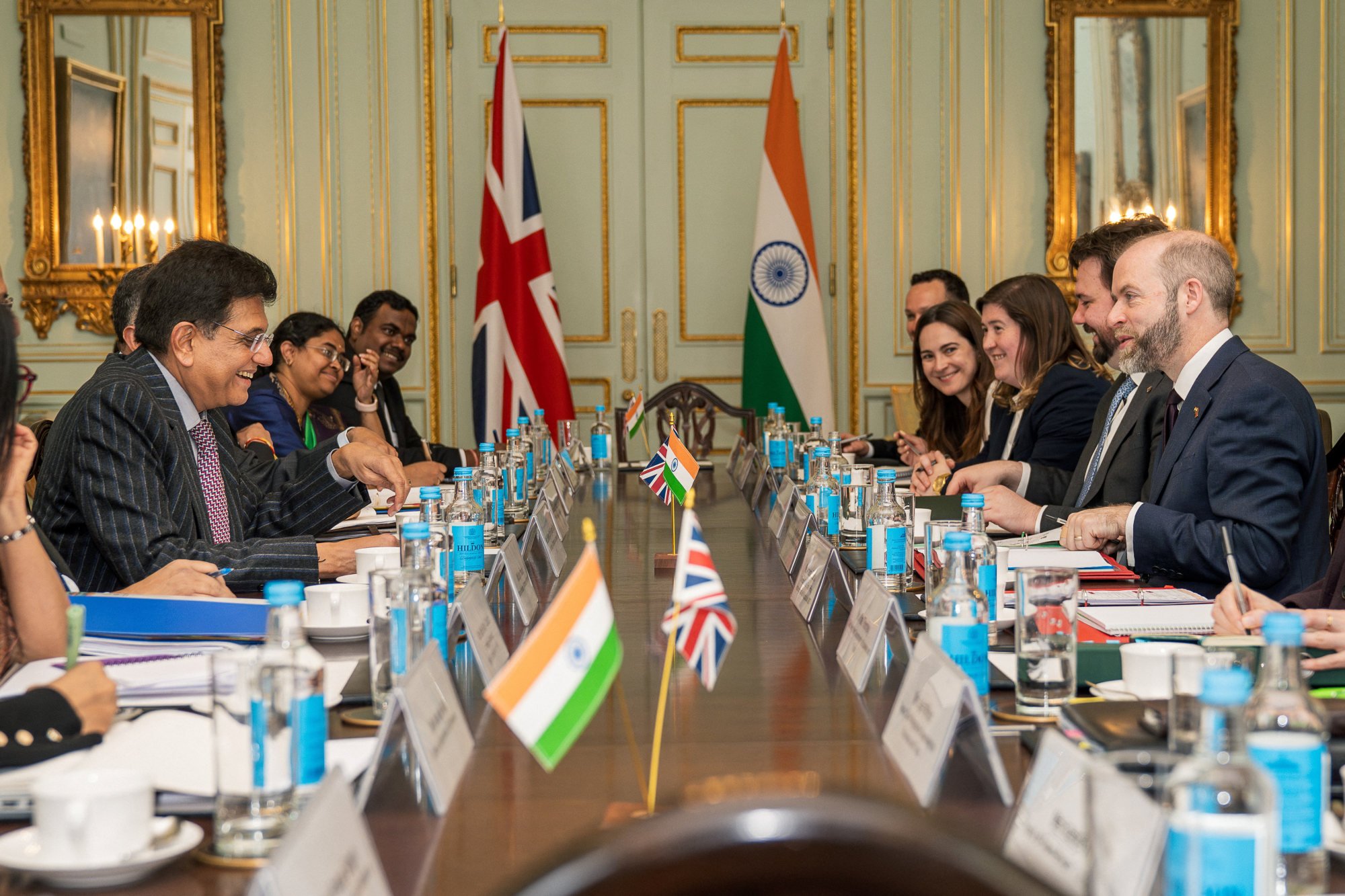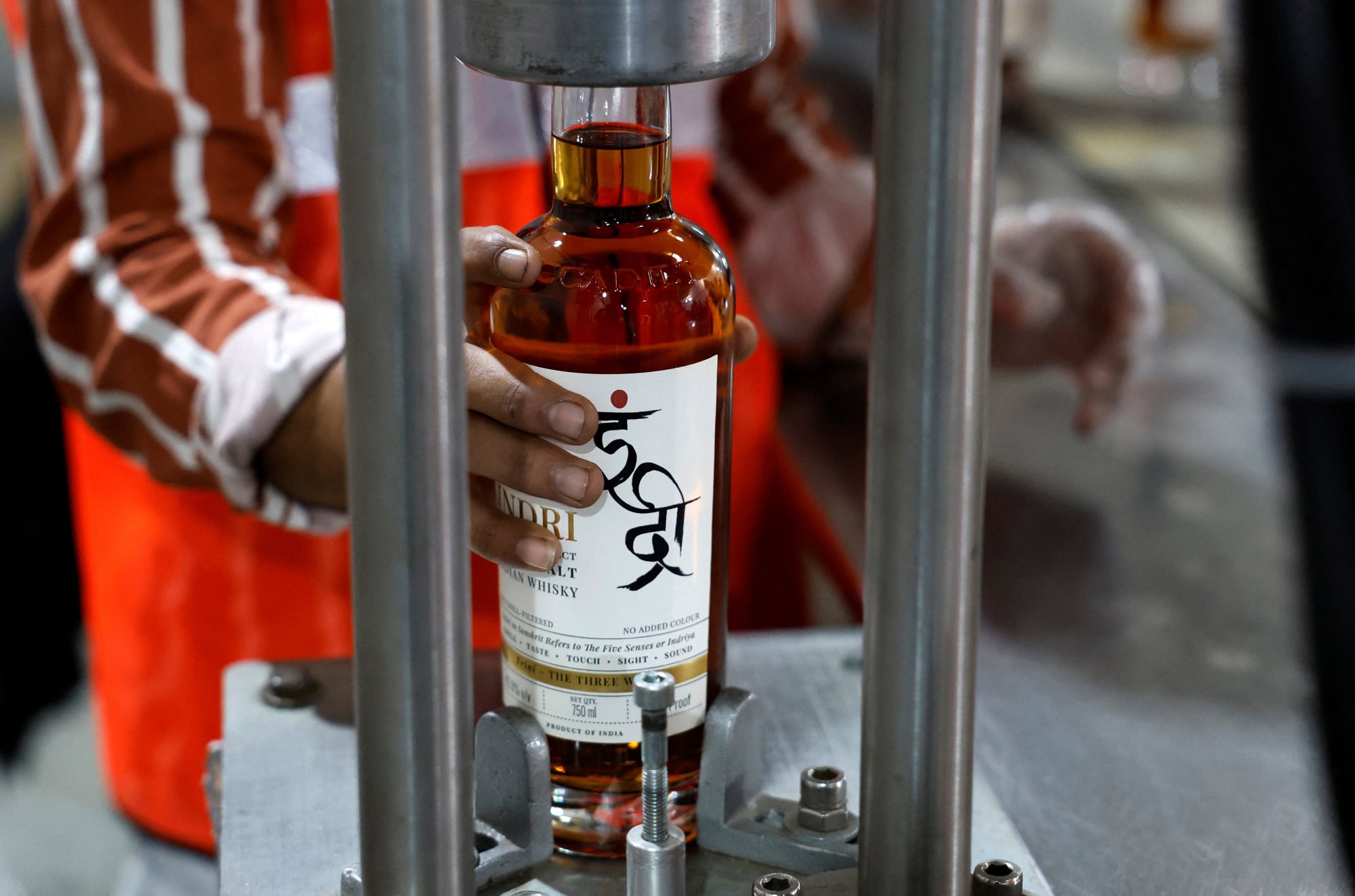UK Scotch whisky makers cheer news of FTA with India, eye expansion
Foreign competitors eyeing the world’s biggest whisky market can expect stiff competition from Indian makers, industry players say

Global Scotch whisky producers are eagerly eyeing India after New Delhi and London concluded their long-awaited free trade agreement (FTA), as lower tariffs are set to propel sales in the world’s largest market for the popular alcoholic drink.
Finalised last month, the deal will lead to India halving its levy on British whiskies and gin from 150 per cent to 75 per cent starting from the middle of next year, and reducing it further to 40 per cent over a 10-year period.
While this could make imported Scotch whiskies much more accessible to Indian consumers, analysts and industry insiders say foreign distillers will still face stiff competition from increasingly sophisticated domestic brands.
India currently accounts for just three per cent of global Scotch whisky sales by volume, despite being the top export destination for the product. The UK is India’s largest whisky trading partner both in value and volume terms, according to Indian government data.
“India’s alcoholic drinks market is at a crossroads, combining strong demand for home-grown products and rising interest in high-quality imported premium products,” said Sanjit Padhi, chief executive of the International Spirits and Wines Association of India.
The new FTA could expand consumer choices, enhance quality benchmarks, and create a level-playing field benefitting domestic and international players, Padhi said.

“With India’s whisky market showing robust growth and increasing consumer sophistication, there is merit in encouraging a regulatory environment that is progressive and inclusive,” he added.
India has long justified its high tariffs for the industry as a way to shield local companies and generate state revenue. But lobbying from UK exporters and changing Indian consumer tastes have pressured Delhi to rethink its position.
Scotch whisky, defined by its use of malted barley, water and yeast distilled and aged for at least three years in oak casks in Scotland, is prized globally for its depth and complexity. Industry leaders believe the FTA could be a game changer.
“The deal has the potential to increase Scotch whisky exports to India by £1 billion [US$1.34 billion] over the next five years and create 1,200 jobs across the UK,” said Mark Kent, chief executive of the Scotch Whisky Association. “The deal is good for India too, boosting federal and state revenue by over £3 billion annually.”
In 2024, more than 192 million bottles of Scotch whisky were exported to India – a more than 200 per cent rise compared with a decade earlier.
But competition in the Indian whisky market is intensifying.

For decades, most Indian whiskies were made from molasses-based neutral spirits, more akin to rum. Rising domestic incomes and global exposure later prompted local makers to transform their business model by making single malt whiskies, which have since enjoyed strong domestic sales. Some of their brands have also competed and won international whisky competitions.
“I expect the Indian whisky market to expand. Indian men prefer whiskies or rum to any other spirits,” said Ipe Jacob of Oxford-based Maharaja Drinks Emporium Limited, which sells Indian liquor products and other beverages online in the UK, mainly to the Indian diaspora.
But it would not be a walk in the park for Scotch whisky makers from the UK, he said.
“Scottish whisky makers here are beside themselves with joy after the signing of the India-UK FTA. They are hoping to take a bigger share of the Indian market,” Jacob said. “I think the Indian market will expand but not by as much as they think.”
Competition from many Indian whiskies would be tough as many were now making great strides on the world stage, he said.
“There was a time when Indian whiskies were made cheaply and made out of molasses. They have completely changed now. There are some brands which are significantly superior to some of the foreign brands’ blended whiskies,” Jacob said.
Among them, Amrut Triparva was named in the best in class section of the US-based Whiskies of the World Awards 2024. A year earlier, Indri Diwali Collector’s Edition 2023 took home the top prize in the same competition.
Still, Scotch whisky brands would be able to make deeper inroads into the Indian market due to lower import duties, said R.V. Subramanian, director of Ian MacLeod Distillers India Limited. The New Delhi arm of the Scotland-based company is setting up a distillery in the northern Indian hill state of Himachal Pradesh’s Una to make Indian malt whiskies.
Even entry-level Scotch whisky brands will be able to match premium domestic products in the segment for Indian-made foreign liquors, according to Subramanian.
“The quality of Scotch whiskies is very different. The taste of the product is different,” he said.
Several Indian whisky makers use a blend of imported bulk Scotch whiskies with home-made whiskies largely derived from grain. Over time, local distillers would be expected to increase the proportion of Scotch blends in their products in tandem with import tariffs falling gradually under the FTA, Subramanian said.
The biggest impact of the FTA would be on the high-end whisky market in India, typically dominated by 15-year-old to 18-year-old whiskies, he added.